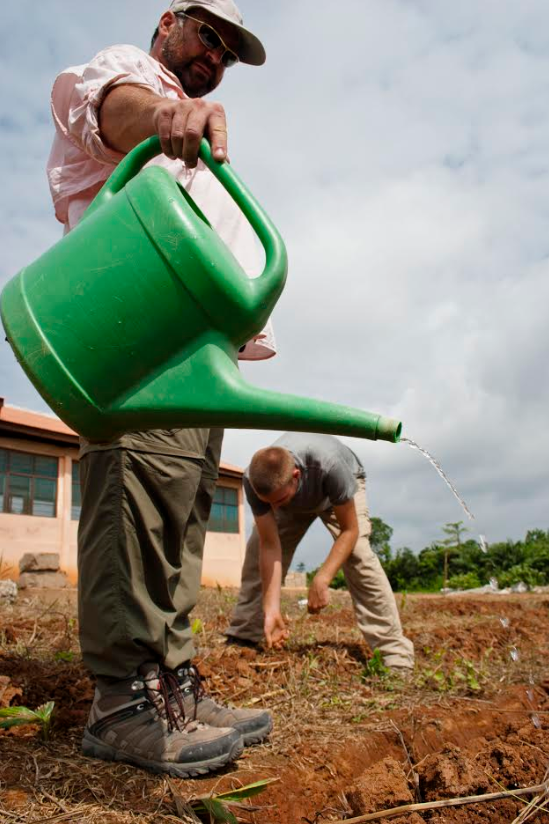News
Turning the Tides with Academic Service Learning
September 19, 2019

Grand Valley State University Faculty Spotlight, September 2019
The experience of speaking one on one with Professor Joe Verschaeve is like watching a puzzle come together, many ideas fitting together to form an important concept. What we learn will serve the world around us, and how well we learn it matters. Vershaeve contributes to positive change not only by educating future leaders, but changes lives with his own hands by traveling with students to Africa and bringing clean water to villages that had none.
It’s difficult to say, even after an hour and three cups of coffee, whether Traverse City’s Grand Valley State University’s (GVSU) Sociology professor has always had such a bold, ‘can do’ attitude about learning, but his enthusiasm comes across loud and clear. As we sat and sipped, Professor Verschaeve told me about his career, his time as a clinical and forensic psychologist, and of a professional journey that has taken him into the jungles of correctional facilities and social work organizations. I’m inclined to believe his fearlessness has as much to do with his area of study as it does with the colorful life experiences he was drawn into as a result, including his participation in improving infrastructure in rural African villages.
“What good is scholarship if you’re not going to apply it?”
Verschaeve’s question is an earnest one, and his passion to explore and serve the world around him seems to be driven by both philosophical study and a cultivated humanity. His curriculum at GVSU aims to grow the minds in his classes into courageous contributors, employing a strategy called academic service learning. Educational objectives and relevant community service are combined to give each student the opportunity to “come into [their] powers as a thinker.”
Verschaeve explains that the mediated or “canned” experience that we are provided in our Instagram and Youtube worlds are often not enough to broaden the mind, or force us to truly grasp complex or uncomfortable concepts. When a student engages a subject in an active and civic minded way, that moment is entirely their own with no one standing between them and the experience.
A triumphant example of academic service learning is the experience afforded to a group of GVSU honors program students who, with the help of Verschaeve and ISHEW (International Sustainability Health Education and Water), established sand filters to purify water flowing through rural African villages. Their experience was dusty, hot, hands on, and undeniably real.
Understanding in an intellectual sense that water scarcity can result in the dramatic breakdown of a society is the easy part. The deprivation impacts community health, industry, and even national security. “Just look at the partitioning of Sudan,” Verschave says.
Facts spill out across the table for a bit, facts that should be shocking enough to make us all activists. But alas we aren’t, and the need for immediate experience rejoins our narrative with a force of spirit that one can’t help but admire.
“Water is a big deal to people. It’s holy,” Verschaeve says, describing his experience and that of his students seeing first hand what happens when water is restricted. “You can’t help but feel something.”
Grand Valley State University’s Traverse City Regional Center faculty provide exceptional opportunities for experiential learning here in northern Michigan. The new major in Integrative Studies allows students to create and define their educational journey incorporating internships and service learning projects. Some students have even traveled across the globe to participate in life changing service programs in India! Read more about Kailey Rubinas in A Laker’s Journey to India.
For details, contact Shannon Owen, Director of Northern Michigan Programs for Grand Valley State University at 231.995.1785.
